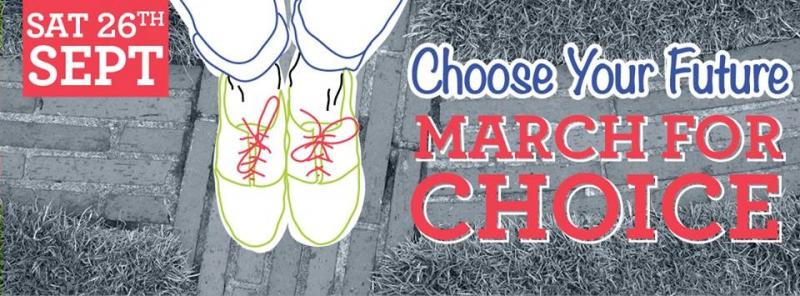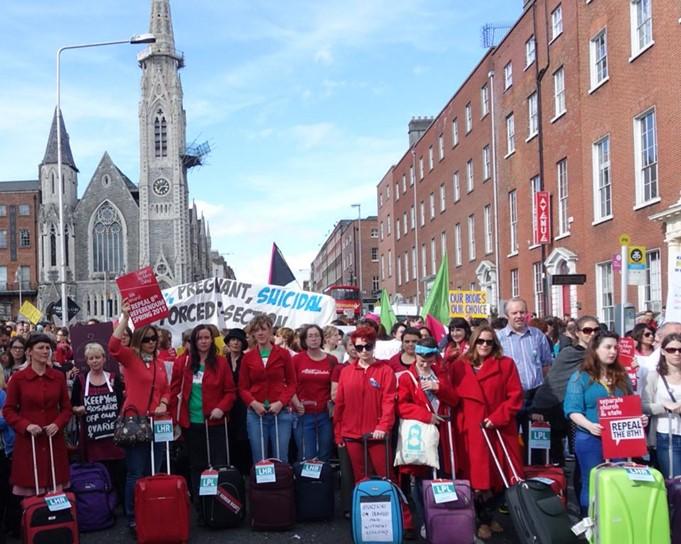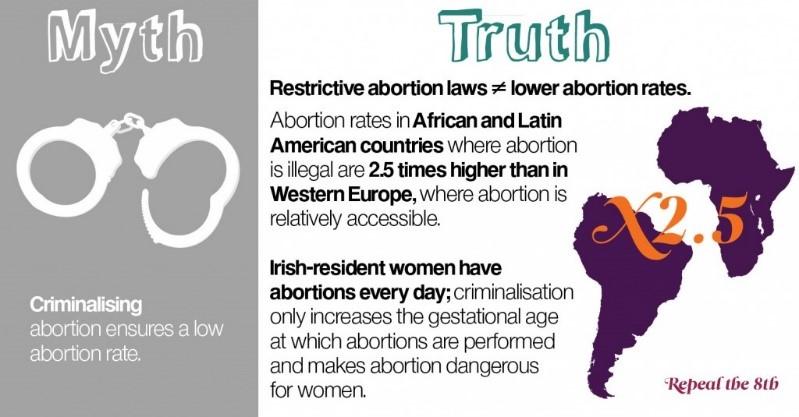The Abortion Rights Campaign "Breaking the Silence" in Ireland
The Abortion Rights Campaign (ARC) - advocating for free, safe, and legal abortion in Ireland - has been an AWID member since May 2015. It is a grassroots, non-hierarchical, all-volunteer organization and is autonomous in its pro-choice activism.
ARC partners with numerous social justice, human rights and gender equality groups working on issues that intersect with and are impacted by Ireland’s failure to support full sexual and reproductive health and rights (SRHRs) for women since the 1983 8th Amendment of the Irish Constitution.
Although ARC only formed in January 2013, it currently actively partners with over 15 organizations throughout Ireland and internationally including the women’s councils, transgender, immigrant, traveler and regional/rural groups.

Marching for Choice
As part of this year's Global Day of Action for Access to Safe and Legal Abortion, ARC held its 4th Annual March for Choice on 26 September 2015
The march is part of ARC’s wider mission to secure access to free, safe, and legal abortion, while challenging the restrictive, stigmatized, and patriarchal environment surrounding SRHRs in Ireland.
Cathie Doherty, one of the co-conveners of ARC tells us, “There is an appetite in Ireland for real change, contrary to the statement from the Minister for Health and the Taoiseach. We need to end the hypocrisy of travel and the hypocrisy which forces women who cannot travel to carry pregnancies or to break the law by importing the abortion pill. We can change Ireland. We can have a society which treats us as the valuable human beings that we are.”

In just one year (2013 – 2014), the march grew from 1,000 to 5,000 participants, and there were a reported 10,000 participants at this year's march. Marchers have brought wheelie suitcases to symbolize the thousands of women who have been forced to seek abortion elsewhere. Between January 1980 and December 2014, at least 163,514 women and girls travelled from the Republic of Ireland to access safe abortion services in another country.
Speaking out – Breaking Silence and Stigma
ARC works closely with women who have had abortions to tell their stories. They create a safe space where women can speak and be listened to. Ireland’s ‘Speak-Out’ organized in 2013 and again in 2014 gave a platform to women to talk about their abortions and reproductive health experiences abroad or illegally in Ireland. Some women have shared their stories with the press.
The Comedian and writer Tara Flynn recently spoke publicly about her experience in the Irish Times and said about the March for Choice that she will also MC for, “It’s time to acknowledge real women’s stories – women we all know – and actual facts: hundreds of thousands of women have had to travel and will continue to travel for healthcare they need, or put themselves at risk. Silence has got us nowhere. It’s time to talk.”
Dismantling Myths Through Social Media

For ARC, social media is an effective platform to campaign for and highlight bodily autonomy issues which often more traditional media fail to engage with.
“We strive to incorporate the use of new media and technologies into all of our advocacy work, with the aim of engaging as wide an audience as possible,” ARC said.
Ahead of International Women's Day in 2014, ARC ran the '8 days, 8 myths' campaign, dismantling the stigma and falsehoods surrounding abortion.
4th Annual March for Choice Campaign

